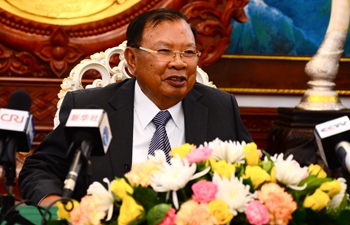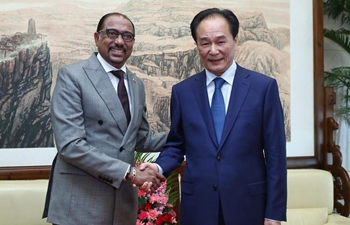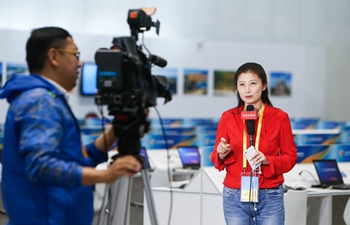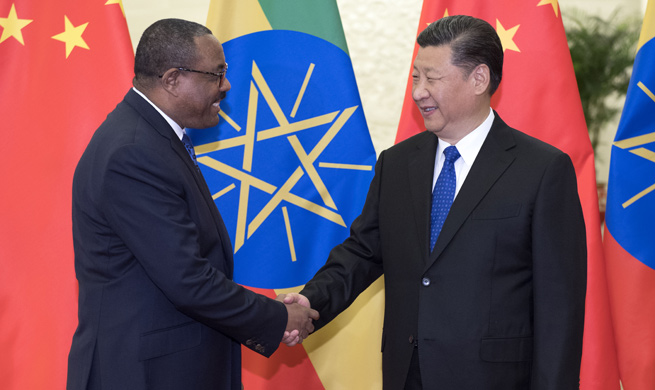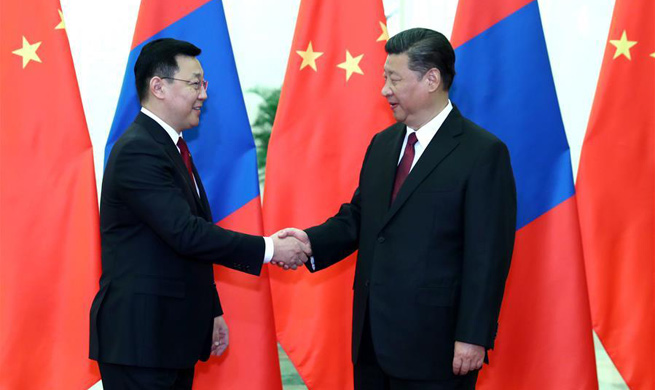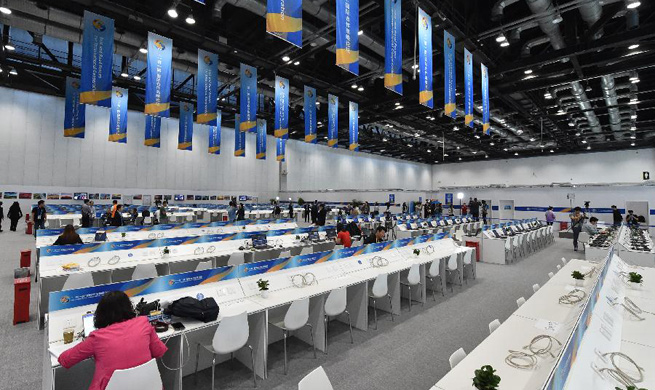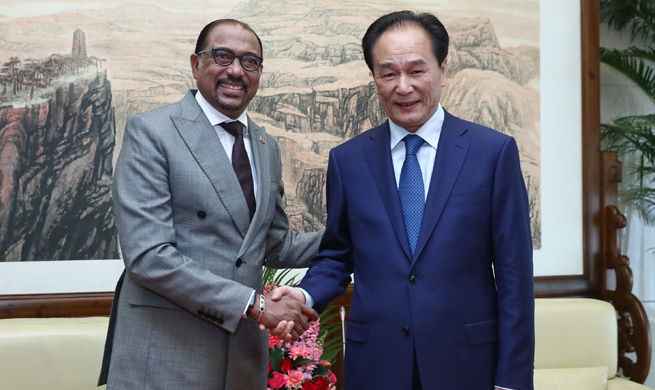BEIJING, May 12 (Xinhua) -- China's efforts to promote industrial capacity cooperation with other countries, especially those participating in the Belt and Road Initiative, are showing signs of success.
"International capacity cooperation is an important approach for jointly building the Belt and Road," Ning Jizhe, deputy head of the National Development and Reform Commission, said at a press conference on Friday.
China has recently signed capacity cooperation documents with more than 30 countries, Ning said.
Taking China-Kazakhstan cooperation as an example, they have signed cooperation projects worth 27 billion U.S. dollars, set up a 2-billion-dollar cooperation fund and earmarked loans of 15 billion dollars for the same purpose.
Currently, 34 projects, including copper mining, electrolytic aluminum and cement plants, have been completed and put into production in Kazakhstan. Another 43 are under construction.
These projects will "increase Kazakhstan's industrial development, create jobs and promote local economic development," he added.
Against the backdrop of sluggish global economy, making use of enormous production capacity China possesses to support the development of other countries will serve as an anchor for world economy, Ning said.
From 2013 to 2016, Chinese companies invested more than 60 billion dollars in countries along the Belt and Road.
By the end of last year, Chinese companies had built 56 economic and trade cooperation zones in countries along the Belt and Road, with total output of more than 50 billion dollars, generating more than 1.1 billion dollars in tax revenue and creating 180,000 local jobs.
In Q1 of 2017 alone, Chinese enterprises signed near a thousand project contracts in countries along the Belt and Road with a turnover of 14.4 billion dollars, nearly half the value of all projects Chinese companies signed in the period.
Chinese companies have brought benefits to all countries involved in the Belt and Road, which improves local infrastructure, increases productivity and creates jobs, Ning said.
Belt and Road countries have also become important destinations for Chinese investment and major markets for Chinese infrastructure capacity, equipment, technology, services and brands, he added.
Xin Guobin, deputy head of the Ministry of Industry and Information Technology, stressed that export of Chinese equipment in the Belt and Road Initiative "saw conspicuous effects."
"High speed trains, electricity and electronics equipment, construction machinery and Chinese ships have become famous brands of China's manufacturing sector," Xin said.
Construction has started or neared completion on some large transport infrastructure projects along the Belt and Road, including the Jakarta-Bandung high-speed railway in Indonesia and the China-Laos railway.
"The export of capacity, equipment, technology and standards will be good for Chinese companies," according to Ning.
China has worked to improve the investment environment along the Belt and Road. By 2016, China had investment agreements with 53 countries and agreements to avoid double taxation with 54 countries.
China will host the Belt and Road Forum for International Cooperation in Beijing from May 14 to 15.
The forum will be attended by more than 1,500 delegates, including officials, academics, entrepreneurs and representatives from financial institutions and international organizations.
Ning said the commission will continue to push forward capacity cooperation to bring mutual benefits to "more and more people from China and countries along the Belt and Road."







